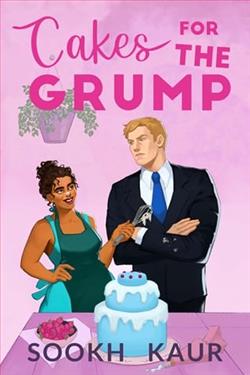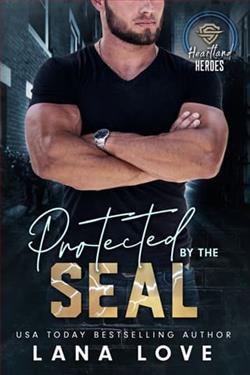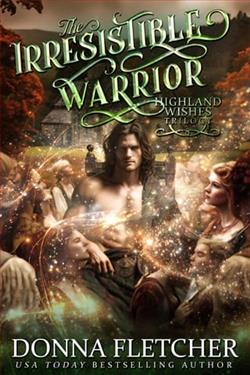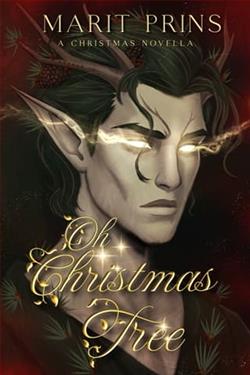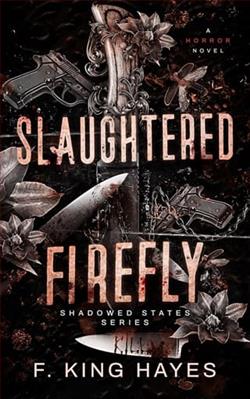Page 73 of Home Before Dark
Yours for eternity,
Callum
I lowered the last letter in a state of sadness, knowing that Indigo never did join poor, besotted Callum at the altar. Petra, sensing my grief, said, “She never married him, did she?”
“No,” I said. “The story I heard is that her father found out, stopped her from eloping, and forbade her from ever seeing Callum again.”
Petra let out a low whistle. “Damn. What did Indigo do?”
“She killed herself.”
“Damn.” Her expression grew pensive. “Indigo was how old when she died?”
“Sixteen,” I said.
“So am I. And trust me, if I was in love with someone, nothing would stop me from seeing him. Not even my mother. And I definitely wouldn’t kill myself.”
She sorted through the letters, ignoring their delicate state.When she stabbed at one with an index finger, tiny chips fell from the page.
“Right here,” she said, reading aloud. “‘Your father plans to stop our impending marriage by any means necessary.’”
She passed the letter to me, and I read it again, paying close attention to Callum’s warning about William Garson.
Do not trust him, my dearest.
“What if—” Petra stopped herself, her cheeks flushing again, as if she knew what she was about to say was stupid. “What if Indigo Garson didn’t commit suicide? What if she was murdered by her father?”
I was thinking the same thing. I’d always thought the official story I got from Hibbs was missing a key element that tied it all together. This, I realized, could be it.
“I think you might be onto something,” I said. “The question is, what can we do about it?”
Petra arched a brow, as if the answer was obvious.
“We do some research,” she said. “And see if we can prove that William Garson was a killer.”
Thirteen
In the morning, I spend an hour blow-drying my still-damp clothes before checking out of the motel. It says a lot about the accommodations in Bartleby that I’d rather return to an allegedly haunted house that had a skeleton in the ceiling than spend another night at the Two Pines.
But it’s more than just the sad state of the motel that brings me back to Baneberry Hall. I return because I need to. The truth—about why we left, about why my father kept coming back, about what happened to poor Petra—is getting closer. Now it’s just a matter of finding it.
I even get a police escort, courtesy of Chief Alcott, who stops by the motel as I’m checking out to give me the all-clear to return home. She insists on steering her battered Dodge Charger ahead of me the whole way home. When we reach Baneberry Hall, I understand why.
The front gate is blocked by reporters from both print and television. Several news vans have set up camp on the side of the road, their back doors open and beefy cameramen waiting inside like bored children. They leap from their vans when we pull up to the gate, cameras swinging my way. The reporters crush around my truck, includingBrian Prince, his bow tie giving his I-told-you-so expression an extra veneer of smugness.
“Maggie!” he shouts. “Do you think your father murdered Petra Ditmer?”
I keep driving, inching the truck forward until I’m at the gate. Chief Alcott climbs out of her cruiser, armed with the keys I handed to her before we left the Two Pines. She ambles through the crowd and unlocks the gate.
“Come on now,” she says to the scrum of reporters, clearing them with several sweeps of her arms. “Let her through.”
Brian Prince is the last to move. He raps on the truck’s window, begging me for a quote.
“Talk to me, Maggie. Tell me your side of the story.”
I pound the gas pedal and the truck surges forward, leaving Brian flailing in a cloud of dust. I don’t slow until I’m up the hill and in front of Baneberry Hall. It looks more sinister now than it did this time yesterday, even though I know that’s impossible. The only things that have changed are what I now know about the place and the length of broken police tape dangling from the front door.
Chief Alcott pulls into the driveway behind me. She gets out of her Charger, and I hop out of the truck. We stand at a distance, facing each other like movie cowboys before a gunfight, both of us fully aware that we might not be on the same side. It all depends on how guilty I think my father is, something that changes by the minute.








